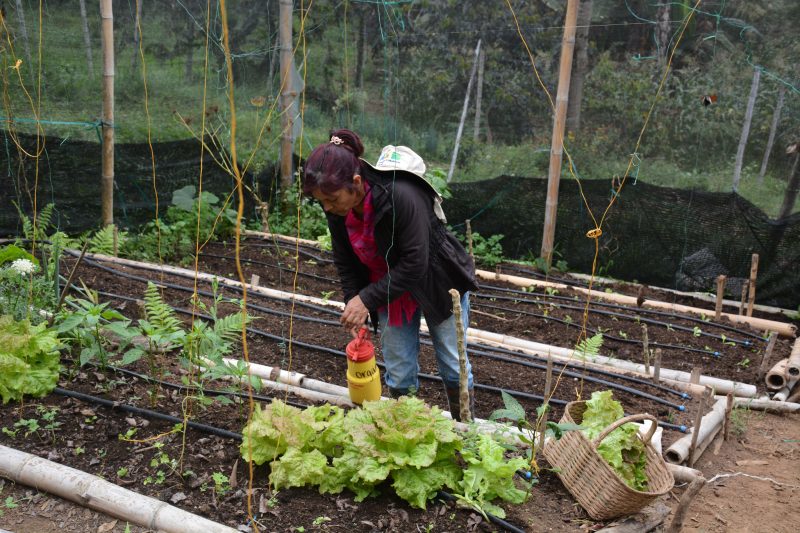by Deissy Martínez Barón, Regional Program Leader, CCAFS in Latin America
Who feeds Latin America during times of crisis? The answer is easy, but producing the food needed requires joint and coordinated work between different actors at different levels.
According to BID, smallholders are responsible for 60% of the food produced in Latin America, but climate change and variability are making their work more difficult. Adding poverty and inequality realities into the equation does not make it any easier. In sum, the pathway to improve livelihoods is highly complex.
In the development of solutions together with rural communities to address these challenges, the CGIAR Research Program on Climate Change, Agriculture and Food Security (CCAFS) has focused its work on generating robust evidence on climate-smart agriculture (CSA) to inform programs and investments from a diverse range of stakeholders. This has been done through the Climate-Smart Villages (CSV).
CSA aims to support decision-making processes that lead to the implementation of practices and technologies that help to improve productivity and food security, increase adaptation and reduce greenhouse gas emissions. CCAFS jointly with partners and farmers have co-develop, tested and evaluated different agricultural practices and technologies, as well as, access to climate services so that they assess its contribution to CSA goals. This joint co-generation of knowledge has allowed farmers and rural families to improve their adaptive capacity, and they are able to plan their crops, decided what varieties to plant and when by using local agroclimatic forecasts.
The co-development, testing and assessment of CSA practices are carried out in the CSVs. The ones in Latin America are located in Colombia, Guatemala and Honduras. CSA practices implementation is done based on the climate vulnerabilities and socio-economic challenges of rural families; therefore, most of them are easy to implement. There is no one-fits-all solution; therefore, the portfolio of practices are designed to address a variety of needs. CSA practices are developed for both cash crops and staple crops to support food security and income generation.
Monitoring and evaluation results from CSV have shown that practices such as organic compost, climate-smart home gardens, drought-resistant seeds, and water harvesting have improved farmers’ incomes, increased productivity, improved food security, and been less affected by climate, among other perceived effects.
As mentioned above, local agroclimatic information is crucial for increasing resilience and reducing climate risks of rural families. In Latin America, 10 countries are providing that information through the Local Technical Agroclimatic Committees (LTAC). An LTAC is a dialogue among a diversity of local stakeholders (farmers, scientists, technicians, public and private sectors representatives), which seeks to understand the climate’s most likely behaviour in a locality and based on that, a local agroclimatic bulletin is generated with tailored-made recommendations and adaptation measures for farmers.
During the coronavirus pandemic, through the LTACs information on issues related to the effects of the pandemic on agriculture and food security in Latin America has been generated, while providing recommendations for increasing agricultural production and addressing the impacts of COVID-19 among rural communities.
CCAFS work has been to provide robust science and capacity building to a variety of stakeholders for reducing the climate vulnerabilities of Latin America’s food systems. Joint evidence generation and promotion of CSA practices have been fundamental for scaling their implementation across the region. Enabling science-based and informed decision-making processes for all food systems actors is a way to start the transformation of our food systems and a step forward for achieving sustainable development goals.
ABOUT THE AUTHOR
 Deissy Martinez-Baron is the Regional Program Leader for CCAFS in Latin America. She plays a major role in regional partnership development aimed to build impact pathways so that knowledge in climate change leads to resilient agriculture in Latin America.
Deissy Martinez-Baron is the Regional Program Leader for CCAFS in Latin America. She plays a major role in regional partnership development aimed to build impact pathways so that knowledge in climate change leads to resilient agriculture in Latin America.
